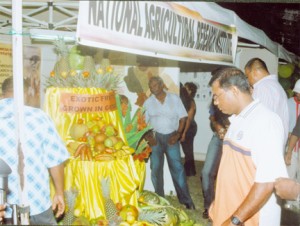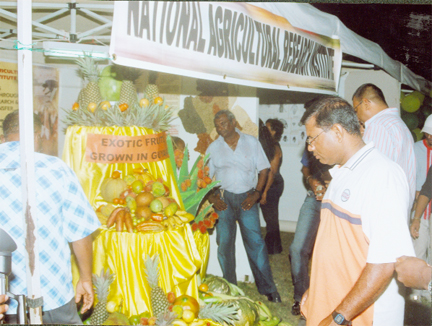The head of a regional agricultural research and social policy consultancy has said that the Caribbean must see the current global food crisis as a “blessing in disguise” and use the opportunity that it affords to strengthen the region’s agricultural infrastructure.

Head of the Trinidad and Tobago-based consultancy firm KAIRI Dr Ralph Henry told an April 7 Public Forum organized by the Caribbean Research and Development Institute (CARDI) that rising food prices affords the Caribbean the opportunity to remove the ghosts of the past, change attitudes, embrace innovation and learning and see agriculture as a business where people can and must earn a good income and a way of life.
Henry told the forum that the transformation of the Caribbean’s current position in the agricultural sector requires “radical thinking” that takes lessons “from its colonial history, current and past experiences and successes as well as agriculture carried out by Israel, Costa Rica and Chile.”
And according to Dr Henry there is an urgent need for the Caribbean to invest in research and development and to support it with appropriate and well-defined policies, organizations, systems and resources. He said that the region must create a thirst for using information to solve our problems, adding that information must be organised and made available to farmers and others who need it.
He has called for an integrated information and intelligence-gathering system which he said should be linked to the research pursuits in the regional agricultural sector.
Meanwhile, he told the forum that the region needs to urgently pursue the aggressive marketing of local foods and policies that take account of consumer concerns relating to health, wellness, nutrition and packaging.
According to Henry, the region appeared to have adopted a ‘business as usual’ posture towards agriculture despite evidence of the declining fortunes of its major agricultural commodities including sugar and bananas. He said that no other industries have been created to support the development of more local commodities.
According to Henry, while regional governments had instituted various responses to address high food prices ranging from “bulk purchasing to moral suasion,” the way forward lay in the implementation of policies to deal with both the demand and supply of food. He said that setting aside the ability to purchase food, the concept of food security must also address transforming the economies of the region and, in the process, making agriculture an important pillar of development.

